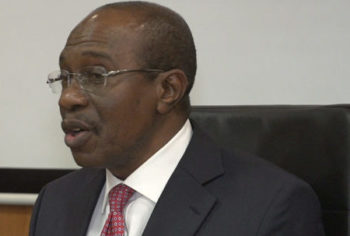
The monetary policy committee of the Central Bank of Nigeria (CBN) says it has agreed to keep the Monetary Policy Rate (MPR), which measures interest rate at 13.5%.
Addressing the press in Abuja on Tuesday after the meeting of the committee, CBN Governor, Godwin Emefiele, said nine members voted to hold rates.
The asymmetric corridor was retained at +200/-500 basis points around the MPR; cash reserve ratio (CRR) at 22.5% and liquidity ratio at 30%.
According to the governor, a hold will help the committee better understand the momentum of growth.
He said the committee is of the opinion that increasing the cost of credit will further diminish investment flow and have a negative impact on output growth
“Given that there was a marginal increase in headline inflation, there is a need to restrain from loosening in order not to worsen inflationary pressures,” he said.
Emefiele further stated that retaining the MPR at 13.5% will help the committee evaluate the impact of interventions to support lending to the priority sectors of the economy.
Speaking on the growth outlook for the economy, Emefiele said there might be some fragility in the second quarter.
He said, “Data on the domestic economy suggests some fragility in output growth during the second quarter of 2019 with improved output for the rest of the year.
“Committee enjoined the federal government to build fiscal buffers through a more realistic benchmark of oil price for the federal budget
“Output growth remains well below the economy’s potential indicating the existence of spare capacity for non-inflationary growth, an opportunity which should be explored through increased credit delivery to the private sector.”
The apex bank chief said the committee feels that growth is hinged on the effective implementation of the economic recovery and growth plan (ERGP), a supportive monetary policy, enhanced flow of credit to the real sector, sustained stability of the exchange rate and improved fiscal buffers amongst others.